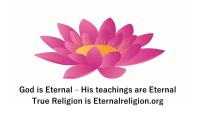There are three categories of charities.
Full Benefit Charity
“Charity given out of duty, without expectation of return, at the proper time and place, and to a worthy person is considered to be in the mode of goodness.” (Lord Krishna, Bhagavad-Gita 17.20)
Some Benefit Charity
“But charity performed with the expectation of some return, or with a desire for fruitive results, or in a grudging mood is said to be charity in the mode of passion.” (Lord Krishna, Bhagavad-Gita 17.21)
Little Benefit Charity
“And charity performed at an impure place, at an improper time, to unworthy persons, or without proper attention and respect is said to be in the mode of ignorance.” (Lord Krishna, Bhagavad-Gita 17.22)
“Only charity in the mode of goodness is recommended.” (Swami Srila Prabhupada, purport Bhagavad-Gita 17.21)
All the above three verses of the Bhagavad-Gita relate to giving by a live person, not a dead person, and so the giving of charity in the name of the dead is dead charity (no benefit to the dead). The only exception is the charity given on behalf of the dead father by the son during the final rites performed on the twelfth day after death. This is charity in the mode of passion because the father is not giving at his will, he is forced to give up the money. This charity will give some benefit to the father.
Some example will help to better understand the above verses.
Example 1
A father is lamenting after the death of his son and the father wants to give his earned money in charity with the hope that his dead son will benefit.
Will the son benefit?
No.
In this case, the giving of charity “with the expectations of some return” in terms of benefit for his dead son is charity in the mode of passion. The father will get some benefit, because he is giving his own earned money while he is alive and with his own free will he is giving. The son will get no benefit, because it’s not his earned money nor is he giving it using his free will. Even if the money was earned by the son, still he will not get any benefit, because the son is not giving away the money by his free will, he is dead and has no choice but to pass on the money to others.
If giving away the money earned by the dead was beneficial to the dead, then there is no point in being charitable while being alive, just enjoy and whatever is left at death can be given away and the dead person will benefit. This is false. We must give while we are alive. The law of karma is very simple “For every action we take, we will face the reaction”. This means we cannot take actions and a dead person will face the reactions. Thus we cannot donate for someone dead and expect them to benefit, only we can benefit.
During our life, we have the choice of giving some of our money in charity. If we don’t then we cannot expect our parents or children to fix the mistake we made of not being charitable.
Example 2
A son laments the death of his father and wants to give his father’s money in charity, in the hope that the father will benefit.
Will the father benefit?
No.
The son will get some benefit (this charity is in the mode of passion), but the father will get no benefit, because the father could have given away his money in charity while he was alive, but he didn’t want to. A dead person’s money has no choice but to pass onto others. So the passing of money left by a dead person cannot be called charity. The dead person has no choice but to pass on the money to others.
At death, all our family members are as good as complete strangers. We will not meet them again, and so we should be nice to them while they are alive and we must give in charity while we are alive without any expectations of return (charity in the mode of goodness). By the law of karma, we will benefit in our next life. Not having expectations, does not mean we will get nothing. It means we should not ask, and simply accept what we get.
Conclusion
We can do noting for those who are dead, but we can do a lot for those who are alive. So feed the poor and the cows, and engage in the best charity. Which is to help others elevate their consciousness by giving them spiritual knowledge. It’s the consciousness at death which will determine whether the soul will take higher or lower birth in the material world or become free from material existence by going back to the spiritual world.
In the spiritual world, there is:
- No old age
- No disease
- No death
- No poverty
- No misery
- No taxes
- No marital problems
- No court cases
- No cheating
- No natural disasters etc..
Everyone on the billions of spiritual planets, live in complete bliss and there is a place reserved for you.
